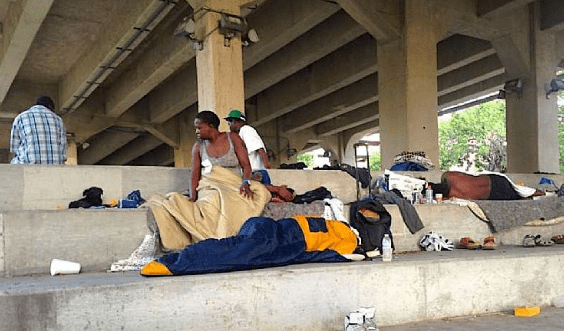Nigeria has the highest number of homeless people worldwide with 24 million homeless
Nigeria is home to the highest number of homeless people worldwide, according to data from the World Population Review. Approximately 10% of Nigeria’s population, or 24 million people, live in impoverished conditions.
Those without access to essential services and living in improper housing are not included in the figures. The lack of cheap housing alternatives, land ownership and use, economic exploitation, and the unequal distribution of wealth and resources across the nation are some of the factors that lead to the large number of homeless people in the nation.
Growing social inequality and increased susceptibility to health problems are two effects of homelessness that could exacerbate the nation’s humanitarian catastrophe.
Therefore, in order to ensure that everyone may become a homeowner, it is imperative that affordable housing units designed to meet the needs of low-income earners be built first. Furthermore, the implementation of strong legislative protections for tenants, such as measures against arbitrary rent hikes and forced evictions, is necessary to uphold renters’ rights and stabilize the housing market.
In addition, the government ought to implement land use regulations that promote fair distribution of land for residential uses, in addition to attending to matters of land ownership and access. When taken as a whole, these actions can help alleviate the housing crisis, enhance quality of life, and develop a more equitable and stable housing market in Nigeria. SOURCE: CSEA Africa
In 2017, the Guardian reported that over 108 million Nigerians are theoretically homeless due to the nation’s housing crisis, to which the Bureau of Public Service Reform (BPSR) issued a warning on Wednesday. The bureau stated that the 100,000 homes constructed each year in the nation are insufficient and that it is now necessary for stakeholders to support government initiatives to provide cheap housing for the populace by making use of the Federal Integrated Staff Housing (FISH) program, which is now in place. According to recent data from the Nigerian Bureau of Statistics (NBS), the country’s housing shortfall is estimated to be 18 million, which is unhealthy for a developing nation.
According to data from the World Population Review, Nigeria leads the list of African nations with the greatest rate of homelessness in 2023. According to the global ranking, Nigeria has a substantial homeless population as a result of multiple interrelated causes, despite its fast population growth of 2.6% per year. A major effect of the development has been felt on the nation’s resources, particularly housing. Millions of individuals worldwide lack a secure and permanent place to call home, making homelessness a major issue. The top twelve nations in the world in terms of homelessness in 2023 are listed below:
- Nigeria: 24,400,000
- Pakistan: 20,000,000
- Egypt: 12,000,000
- Syria: 6,568,000
- DR Congo: 5,332,000
- Bangladesh: 5,000,000
- Colombia: 4,943,000
- Afghanistan: 4,660,000
- Philippines: 4,500,000
- Yemen: 3,858,000.
- Indonesia: 3,000,000
- Somalia: 2,968,000
- Sudan: 2,730,000
The World Population Review, in its analysis of the above said: Given that Nigeria has the largest population in Africa, homelessness is a widespread problem there. More than 24 million individuals are classified as homeless, and many more do not have acceptable access to a suitable place of residence with some of the most fundamental services. Having said that, Nigeria is not as impoverished as some people may believe because the nation has an abundance of resources. The main cause of the problem is wealth access, which is frequently taken advantage of by other nations or even their own state.
In addition, Nigerians suffer a massive flood of immigration as well as emigration because to its big size, which regularly results in changes to the ownership of residences. In theory, this could be advantageous, but in practice, it also leads to natural gentrification as developers build more ornate, costly homes in an attempt to increase rental income or turn them into more successful businesses. Having said that, Nigeria offers a large amount of land for sale, which humanitarian and benevolent groups could utilize to improve the situation.




